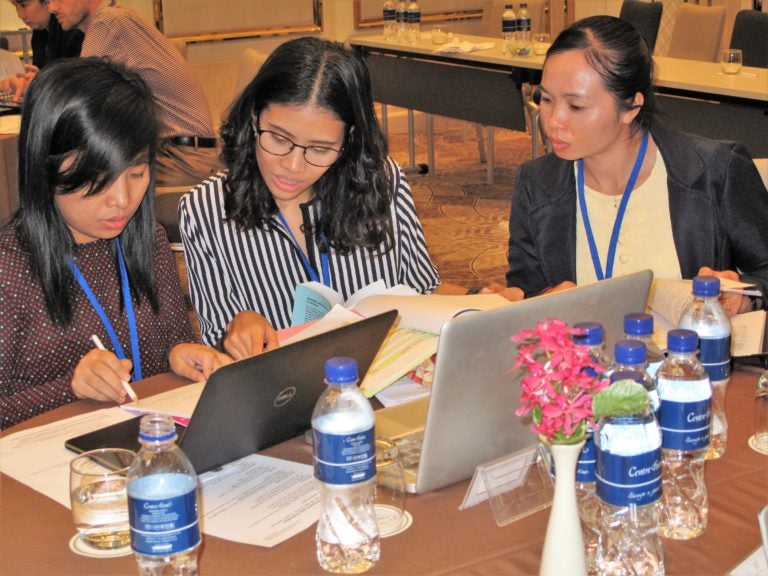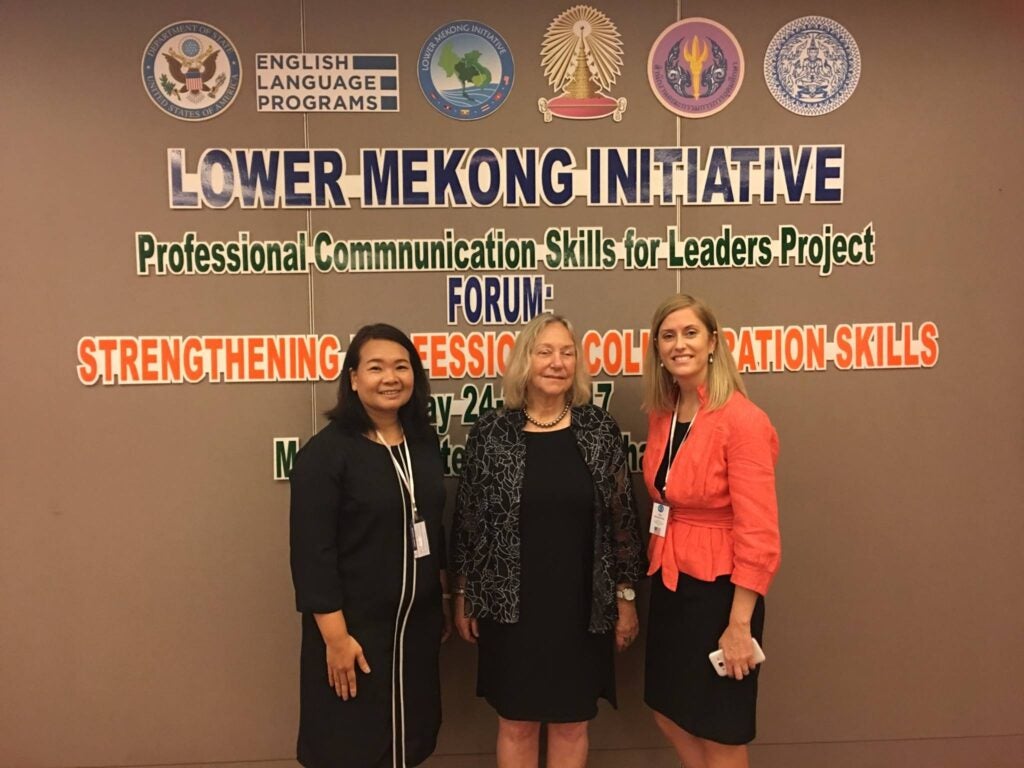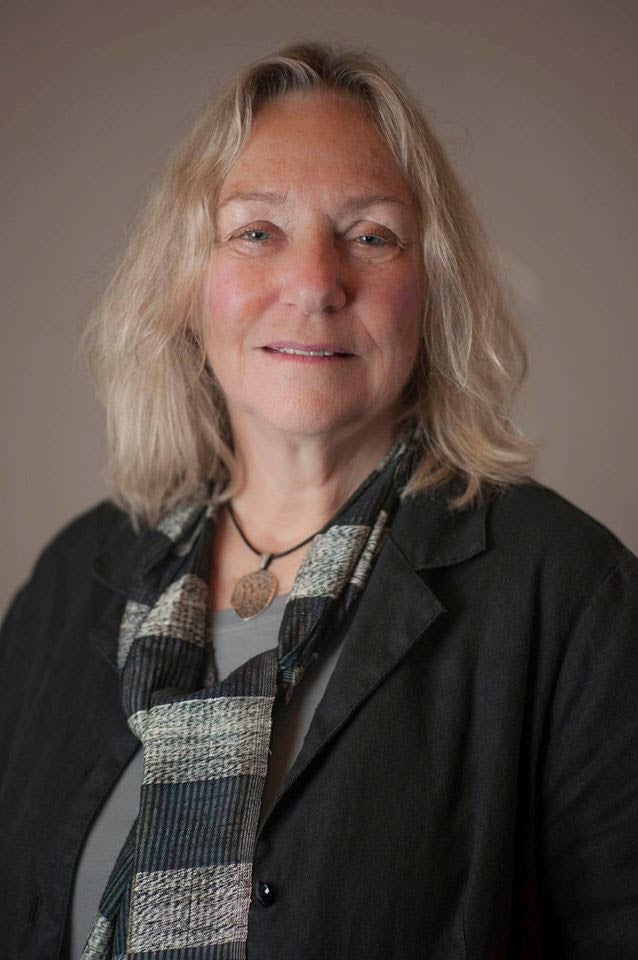“My friends in the States say, ‘You know people all over the world,’ and I say, ‘Yes, I do, and the reason is the Specialist Program.'”
Donna Brinton’s ties to the English Language Specialist Program extend back to its inception year, 1991,
when Brinton, then a lecturer in UCLA’s Department of TESL and Applied Linguistics, received an
invitation from the U.S. Information Agency, the Specialist program’s initial administrator, to conduct
teacher trainings in Thailand. The assignment: train 150 secondary school teachers on the techniques of
content-based instruction (CBI), one of Brinton’s primary areas of expertise. “It was a very exciting
opportunity for me, but I could never have realized how much this decision would figure into my career,”
says Brinton. A deep and lasting alliance had begun. Over the next 30 years, Brinton would complete
more than 50 Specialist assignments in 35 countries. “My friends in the States say, ‘You know people all
over the world,’ and I say, ‘Yes, I do, and the reason is the Specialist Program,’” says Brinton.

Examples abound of enduring connections, as well as profound experiences. Among the most
memorable, Brinton cites conducting teacher trainings in South Africa soon after the end of apartheid,
delivering the plenary speech at the First Annual Central Asian Teachers of English Conference in
Uzbekistan after the collapse of the Soviet Union, and presenting workshops to faculty on the campus
of Kabul University and Kabul Education University as well as participating in English Access
Microscholarship Program classes in orphanages in Afghanistan. While Brinton recalls each of her many
assignments as valuable, she considers one long-term assignment – the Professional Communication
Skills for Leaders (PCSL) and Community of Practice (CoP) projects for the Lower Mekong Initiative (LMI)
– as particularly meaningful.
Not only did this two-pronged undertaking bring her back to the site of her first Specialist posting,
Thailand, but on this assignment she was able to dive deep, returning five times from 2014 through 2017
to take stock of progress, offer recommendations, and most importantly reconnect with the project
leaders, which included Fellows from the five LMI countries – Cambodia, Laos, Burma, Thailand, and
Vietnam – the RELO team, and faculty from Bangkok’s Chulalongkorn University. “As a Specialist,
sometimes you go to a country and do a one-off presentation at a conference but don’t collaborate with
anyone. You’ve imparted some knowledge but don’t know what’s going to happen with it,” she says.
“I’m a collaborator at heart, and the LMI projects gave me the opportunity to work closely over the years
with the RELO and RELO office staff, the Fellows, and university faculty. It was a dream team. We would
sit and brainstorm for days about what we could do to make these projects more successful, more
impactful.”

Brinton’s involvement with the LMI, an alliance formed in 2009 to enhance cooperation and build on the
mutual interests of the Lower Mekong countries, came about unexpectedly. Brought in as a Specialist to
give the keynote addresses at the 2014 TESOL conferences in Thailand and Laos, she heard repeatedly
from Fellows in the Lower Mekong region about one of their most demanding assignments, the PCSL
project. The goal of this five-year undertaking, started in 2012, was to develop English for Specific
Purposes curricula for mid- to upper-level ministry officials who worked in areas directly related to the
LMI’s main pillars: agriculture and food, connectivity, education, energy, environment and water, and
health. The expectation was that improved professional English language skills would enhance
professional development and encourage more active participation in regional meetings, conferences,
and partnerships. Toward that end, Fellows in the Lower Mekong had developed a bounty of lesson plans
during the project’s initial three years, all amassed on a central hard drive with no obvious organizational
scheme. “There were files scattered all over the place. It was a gold mine of materials, but there was no
uniformity, no template,” recalls Brinton. “They desperately needed to be organized and edited.” A
decision was made by then RELO Joëlle Uzarski and LMI Budget Manager Stephen Hanchey to bring
Brinton back to supervise this massive task.

Supervise, yes, but the collaborative nature of the undertaking remained solidly in place. “I never worked
as closely with Fellows as I did on that project,” notes Brinton. “They were just amazing.” They were also
concerned: when Brinton officially joined the project in 2015, they wondered what would ensure that
their professional development efforts, including the PCSL materials, would have a lasting impact in the
Lower Mekong. More brainstorming followed, and an idea was introduced to expand the scope of the
project to incorporate a Community of Practice (CoP), a dedicated group of English language teachers
from the Lower Mekong who, in collaboration with the Fellows, would take charge of future professional
development in the region, championing colleagues, running workshops, presenting at regional
conferences, and conducting action oriented research projects. The idea turned into a well-received
proposal, and the Lower Mekong CoP became reality.
“I know where this journey started, and I see no limit as to how far it can go.”
Brinton credits the Fellows with this spark of inspiration, as well as with putting the CoP into motion.
Since they were the ones in touch with educators in their countries, they selected initial CoP members –
five to eight from each country – primarily seeking out English language teachers fresh out of graduate
school or relatively new to the classroom. “We wanted dedicated teachers who were eager to learn,
grow with the CoP, and eventually become mentors to newer members,” says Brinton. To help the
fledgling CoP get started, collaboration again was key. Brinton and the Fellows mentored the newly
minted members, assigning them the task of creating electronic poster sessions. For this project, they
created multinational teams who initially presented at a simulated conference, then, with the
encouragement of the CoP team, moved on to present at actual regional conferences such as CAMTESOL
and Thailand TESOL.
This dynamic collaboration has paid off. When the LMI assignment was completed in 2017, the PCSL had
close to 550 pages of lesson plans available for download, and CoP members had already conducted 41
independent workshops and reached an audience of more than 1,800 teachers and students. Today, the
Lower Mekong CoP has an active membership of more than 1,650 on Facebook. “An incredible energy
developed throughout this assignment and to see it sustained is so gratifying,” says Brinton. “I know
where this journey started, and I see no limit as to how far it can go.”

Donna M. Brinton is an international TESOL educator. Previously, she was employed as Senior Lecturer at the University of Southern California and as a Lecturer at the University of California, Los Angeles. She is the co-author/co-editor of numerous professional texts, including Content-Based Second Language Instruction, The Content-Based Classroom, Content-Based Instruction: What Every ESL Teacher Should Know, New Ways in Content-Based Instruction, New Ways in ESP, Heritage Language Education: A New Field Emerging, Teaching Pronunciation, The Linguistic Structure of Modern English, and Teaching English as a Second or Foreign Language. Her first English Language Specialist assignment was in Thailand in 1991. She has served as a Specialist in 40 countries over the course of her career and is indebted to the program for having had a profound influence on her career.
